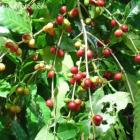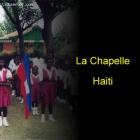Haiti Facts
Haiti is the world’s first black-led republic that threw off slavery and French colonial control in the early 19th century to become the first independent Caribbean state in 1804. The country with an estimated population of 9,893,934 (2013) celebrated its 200 years of independence in 2004. It has a land area of 27,750 sq km.
Haiti Economic Facts:
As per 2011 estimate, it has a GDP of $12.44 billion with per capita GDP of $1,200 (2010).The main industries of the country are, Sugar, Refining, Cement, Flour Milling and Textiles. Its major foreign exchange earning sources include export of coffee, mangoes, oils, cocoa and manufactures.
Haiti Population Facts:
About 95% of the populations are poor Creole-speaking black. The rest 5% of the people are Mulattoes (mixed African and European descent) who control most of the country’s wealth.
Haiti Religious Facts:
The major portion of the people in the country believe in Christian faith because 80% of its population are Roman Catholic and 16% are Protestant (Baptist 10%, Pentecostal 4%, Adventist 1%, other 1%), other religions consist 3% and no religion 1%.
Haiti Environment Facts:
The country is a frequent victim of natural calamity and disaster. A 7.0 magnitude earthquake on 12 January 2010, took 316,000 lives which were again followed by cholera outbreak in October 2010. This situation was further aggravated by heavy rain in June 2011 that raised the case of reported number of cholera victims to 485,000 with 6,700 deaths.
Haiti History Facts:
The famous explorer Christopher Columbus landed on this country on Dec. 6, 1492 and named it Hispaniola. The natives of Haiti were known as Arawaks who were sufferers of Spanish rule till 1697 when Spain recognized France's claim as French Colony. Spain ceded western part of Hispaniola to France in 1697. The French named their new colony “Saint Domingue” which later became a leading place for sugarcane production, dependent on slaves. An insurrection erupted among the 480,000 slave population in 1791 that resulted in a declaration of independence by Pierre-Dominique Toussaint l'Ouverture in 1801. In 1804, this part of land became Haiti or Land of Mountains under Jean-Jacques Dessalines who is regarded as the founding father and first ruler of independent Haiti under the 1801 constitution.

 Korekafe to unlock mysteries of Haitian coffee
Korekafe to unlock mysteries of Haitian coffee
 Self-Driving Autos to Increase Economic Growth
Self-Driving Autos to Increase Economic Growth
 Brasserie Nationale d'Haïti S.A (Brana) new image for Prestige...
Brasserie Nationale d'Haïti S.A (Brana) new image for Prestige...
 Why wasn't Jean Bertrand Aristide Present in Gonaives?
Why wasn't Jean Bertrand Aristide Present in Gonaives?
 Famous Brazilian singer Nelson Ned, passed away
Famous Brazilian singer Nelson Ned, passed away
 Something to think about
Something to think about
 Newsletter
Newsletter
 Informative Marketing and Advertising in the Haitian Community
Informative Marketing and Advertising in the Haitian Community
 Haitian Thanksgiving
Haitian Thanksgiving
 La Chapelle, Haiti
La Chapelle, Haiti